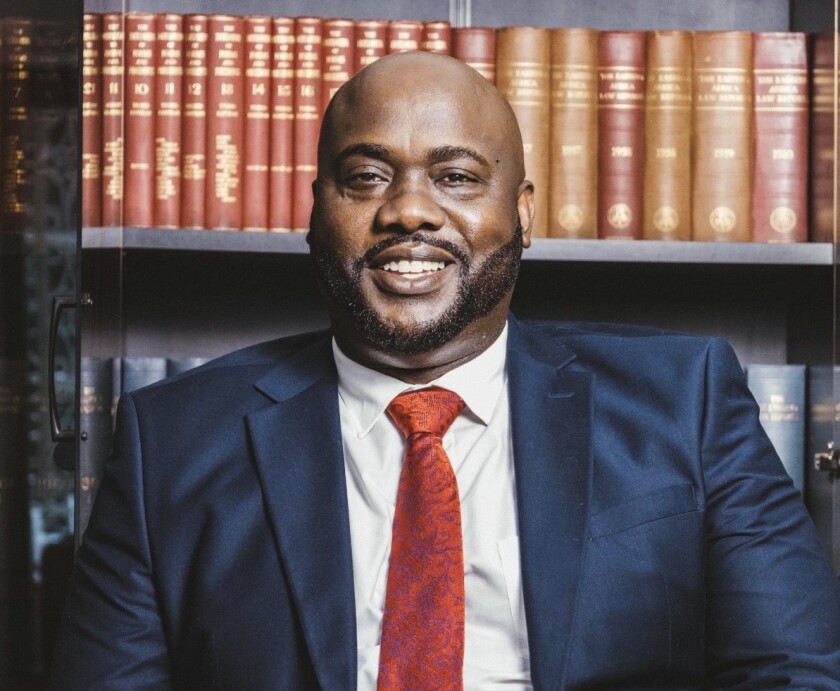Welcome to the latest instalment of Managing IP’s ‘Five minutes with’ series, where we learn more about intellectual property practitioners on a personal and professional level. This time we meet Patrick Ogola, managing partner at O&M Law in Kenya.
Someone asks you at a party what you do for a living. What do you say?
I usually say, ‘I protect ideas for a living’. That always gets people curious. Then I explain that I’m an intellectual property lawyer – so I help individuals and companies protect the value of their innovations, brands, and creative work. I'm also the managing partner at our firm, which means I get to wear both the lawyer’s hat and the business leader’s hat.
Talk us through a typical working day.
My day starts early, usually around 6 am. I take a bit of time to review my to-do list and catch up on global IP news. Once I’m in the office, my mornings are often filled with client consultations – anything from trademark clearance opinions to infringement disputes. Afternoons are for strategic meetings with my team, managing firm operations, and mentoring associates. I usually carve out time in the evening to do some quiet reading or draft high-focus documents.
What are you working on at the moment?
I am doing an IP audit for a manufacturing outfit that sells fast moving consumer goods. They have lost track of the marks they have registered over the years and need it all streamlined. I am also handling a trademark dispute over one of their most valuable marks that is under challenge from an international competitor.
Does one big piece of work usually take priority, or are you juggling multiple things?
It’s always a juggle. IP law is inherently multi-faceted, with litigation, advisory, registration, and enforcement, so there are usually multiple matters moving at once. As a managing partner, I also must balance client work with firm development, business strategy, and team welfare. Prioritisation is key.
What is the most exciting aspect of your role, and what is the most stressful?
The most exciting part is seeing ideas come to life – and helping clients secure the rights that turn those ideas into commercial assets. It's also incredibly rewarding to help African entrepreneurs and creatives protect their innovations on the global stage.
The most stressful part? Managing timelines across multiple jurisdictions, especially when enforcement is required quickly and systems don’t move at the same pace everywhere.
Tell us the key characteristics that make a successful IP lawyer/practitioner?
A successful IP lawyer must be detail-oriented, intellectually curious, commercially aware, and an excellent communicator. You need to understand both the law and your client’s business goals. Patience, creativity, and adaptability are essential, especially in regions where IP frameworks are still developing.
What is the most common misconception about IP?
That registration equals protection. Many clients think that once they file for a trademark or patent, their work is done. But IP rights are only as strong as your ability to monitor, enforce, and strategically manage them. Another misconception is that IP is only for large corporations – its not. SMEs and individual creatives often have some of the most valuable IP.
What or who inspires you?
I’m inspired by visionary entrepreneurs who are building solutions out of nothing, especially in emerging markets. I’m also inspired by trailblazing lawyers and firm leaders who challenge the status quo and champion innovation in legal practice.
If you weren’t in IP, what would you be doing?
I’d probably be in coaching, mentorship, or some form of personal development work. I’m deeply passionate about helping people unlock their potential and succeed on their terms. Making a tangible impact in someone’s life – whether through guidance, encouragement, or strategy has always been incredibly fulfilling for me. Even in law, that’s a core part of what drives me: empowering clients and building their confidence in protecting what they’ve created.
Any advice you would give your younger self?
Don’t be afraid to specialise early. The legal world rewards deep expertise, and IP is one of those fields where your value grows exponentially with time. Also: speak up, even when you're the youngest person in the room, your perspective is valid.
What is your motto in life?
‘Build with intention, protect with strategy. ’ Whether it’s a brand, a career, or a business – create it with purpose and ensure it's legally and structurally protected from the start.










